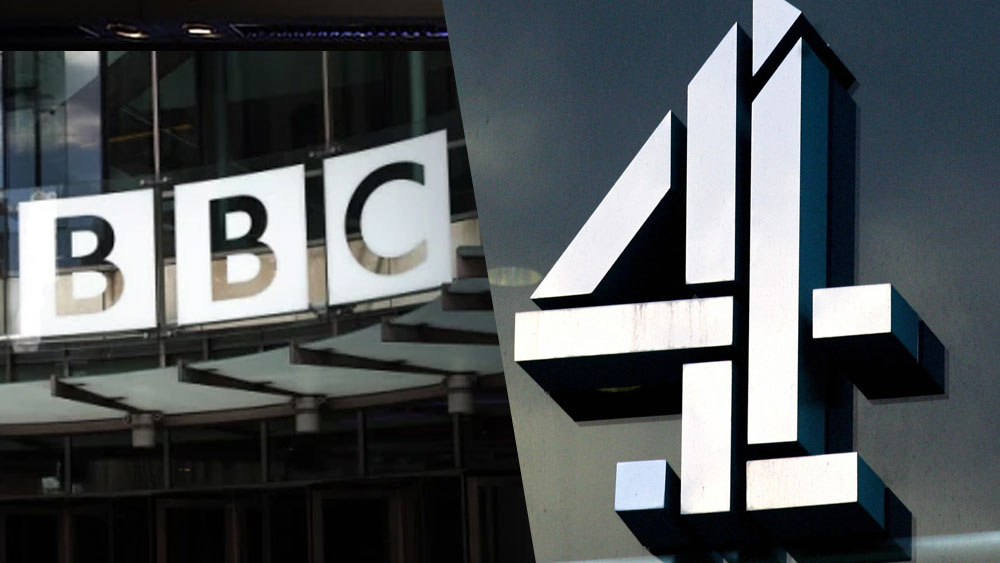Our public broadcasters are under attack. As the BBC faces funding cuts and interference from government, and Channel 4 is threatened with privatisation, we urgently need to protect them. But we need to do more than just defend the status quo: we need to transform them into democratic, accountable institutions fit for the 21st-century.
A People’s BBC would be fully independent of government, funded by a fair alternative to the licence fee, and have new opportunities for citizens to decide how it is run. Learn more about our plans for a People’s BBC and how we are campaigning for it.
A People’s Channel 4 would be protected from privatisation, be better at serving young people and minorities, and advertising free. Learn more about our vision for a People’s Channel 4 and how we plan to build it.
Our work on a People’s BBC and Channel 4
– Channel 4 privatisation
MRC response to the Government consultation on privatising Channel 4. Download PDF
– People’s BBC Petition
Sign the petition to show your support for a People’s BBC.
– BBC & Beyond Podcast, Episode 4
Listen to our podcast on what is wrong with our public broadcasters as we know them and why we need a People’s BBC and Channel 4. Listen on Soundcloud
A People’s BBC
We would all be worse off without the BBC – but for it to truly serve the public, it has to change. A People’s BBC would be:
- Funded by a fair alternative to the licence fee, where those who can afford to pay more – just as wealthier people pay more of their taxes for the NHS
- Fully independent of government, with a proper legal structure to replace the Royal Charter, no more government appointments, and funding levels set by an independent body
- Further decentralised to the English regions and devolved nations, so decisions are made much closer to home, with new opportunities for citizens to participate in how the BBC runs
Take action! Sign the petition for a People’s BBC
Watch Creating A People’s BBC – event at Media Democracy Festival 2022
Our vision for a People’s BBC
In our Manifesto for a People’s Media, we imagine a media commons which contains a transformed People’s BBC and People’s Channel 4, alongside a thriving ecology of independent media. All these media organisations would be united by shared values of being independent, democratic, accountable and for everyone, and by ‘commoning’ practices for living these out. What would this mean for the BBC?
- Independent
- A People’s BBC would need to operate free from government and commercial pressures. The level of funding it receives would be taken out of government hands and set by an independent body. This could be modelled on the Press Recognition Panel (PRP), set up following the Leveson Inquiry to ensure that regulators of the UK news publishers are independent, properly funded and able to protect the public.
Independence at the BBC is also undermined through government involvement in senior appointments. The Manifesto proposes that all government involvement in appointments should end, and the BBC board should instead have worker representation and the wider public should also get a say. This could be through direct elections, electing an appointments panel or having a range of civil society representatives. This involvement we need to be carefully designed to make sure it facilitated meaningful participation – for example, if voting was connected to paying the licence fee then it would guarantee a good turnout.
- Accountable
- A People’s BBC would be more accountable to its audiences. We think a new regulator should be set up to take on regulating public media, as Ofcom’s brief has become too large. This new regulator –perhaps named ‘Mediacom’ – would take on responsibility for regulating broadcasters as well as social media and other digital platforms. Just like the People’s BBC, it would be radically decentralised and facilitate the wider public to take part in deciding what is harmful and how it should be addressed.
- Democratic
- A People’s BBC would be much more decentralised than today, with programme making, editorial decisions and budgeting mostly sitting with the devolved nations and English regions, so it was better placed to make programmes that fully represented the concerns and experiences of the whole country.
Participation in a People’s BBC by the wider public would be coordinated through a network of Citizen Media Assemblies. These could develop a set of ways for people to participate such as elections for regional boards, selecting citizens’ juries to monitor coverage of controversial issues and auditing commissioning, for example to ensure that people from minority groups are represented. Greater democracy would also be facilitated among the workforce, with journalists empowered through a conscience clause to refuse unethical assignments, a strong voice for media unions and worker representation on BBC boards.
- For everyone
- A People’s BBC would be funded by a progressive household levy rather than the current regressive flat-tax licence fee, and it would be generally accepted that wealthier people should pay more for this public service, as with the NHS. While for the NHS this progressive form of taxation is through national insurance contributions linked to earnings, the most straightforward way to create a progressive household levy would be to link it to council tax bands. This would be levied according to whether a house had an Internet connection rather than the television, while also guaranteeing affordable full fibre broadband to all homes.
Citizen Media Assemblies could decide how to translate universalism to a digital context, for example by making choices about how personalised they want their local iPlayer to be, and what kinds of content they want to promote. The Welsh citizen media assembly, for example, could decide it wanted to prioritise programmes made by the Northern Irish BBC for a whileif it felt it was in the interests of citizens to learn more about that part of the UK. This would allow citizens across the UK to develop deeper connections and understanding between different regions and nations, rather than the ‘national’ conversation being constantly dominated by elites in London.
Learn more
– Building a vision for a People’s BBC, IPPR
– The BBC is broken. Here’s how we fix it, Open Democracy
A People’s Channel 4
Channel 4 is a unique media institution – funded by advertising, owned by all of us. We need to stop it being privatised, and fight for a stronger and more innovative People’s Channel 4. This would:
- Be fully independent of government – with no government appointments and new protections from the threat of privatisation
- Have a strengthened remit to serve young people, minority audiences and support innovation
- Be decentralised to the English regions and home nations, with new opportunities for citizens to participate in commissioning, governance and holding Channel 4 to account
- Commission from independent production houses which provide high quality jobs, which represent diverse communities and which are situated across the UK
- be funded by an advertising levy so it could be advert-free
Learn more
– Take action! Stop Channel 4 privatisation
– ‘Creating a People’s Channel 4’ event at Media Democracy Festival, 2022. Watch event
Our vision for a People’s Channel 4
In our Manifesto for a People’s Media, we imagine a media commons which contains a transformed People’s BBC and People’s Channel 4, alongside a thriving ecology of independent media. All these media organisations would be united by shared values of being independent, democratic, accountable and for everyone, and by ‘commoning’ practices for living these out. What would this mean for Channel 4?
- Independent
- A People’s Channel 4 would have no government appointments and new protections from the threat of privatisation so it could fearlessly hold government to account. It would also be independent of commercial pressures through a new funding model, which would also secure its long-term future in an era when television advertising revenue is in decline. A People’s Channel 4 would be funded by a levy on advertising spending across all technologies and platforms – a tax of 5% would raise more than £1 billion a year. The level of funding would be set by an independent body to guarantee independence from government. Being funded in this way would allow a People’s Channel 4 to run without adverts and centre its public mission, rather than delivering audiences to advertisers.
- Accountable
- A People’s Channel 4 would be more accountable to its audiences, through better regulation and new forms of citizen involvement. We think a new regulator should be set up to take on regulating public media, as Ofcom’s brief has become too large. This new regulator would take on responsibility for regulating broadcasters as well as social media and other digital platforms. Just like the People’s Channel 4, it would be radically decentralised and facilitate the wider public to take part in deciding what is harmful and how it should be addressed.
- Democratic
- A People’s Channel 4 would be decentralised and democratised. Its remit would be strengthened to focus once more on serving young people and people from minority groups and supporting innovation within film and television. Commissioning would come from local and genuinely independent producers, so it better represents the ethnic and cultural diversity of the UK and supports cultural production outside of the middle classes of London and the south-east of England. A People’s Channel 4 would also have new avenues for citizens to take part in deciding how it was run – for example, regional and national boards could be directly elected by viewers, and youth juries could oversee commissioning for young people.
- For everyone
- A People’s Channel 4 would play a crucial role not just on serving particular minorities, but creating a shared space where different groups could encounter each other. Citizens could come together to decide how algorithms on their local 4 on Demand platform worked, and whether there were specific themes or programmes they wanted to ensure everybody was exposed to. 4oD could also act as a showcase for innovative programming from the Independent Media Commons, helping that content find a wider audience.




